More than ever before, immune support has been a cornerstone of our health for the last couple of years. Cold and flu season became a year-round concern and many of us are still struggling to feel comfortable in populated areas or even in our workplaces. Our cabinets are likely stocked with various cold and flu medications, and we’ve been trying our best to stay safe and healthy. Not only has the pandemic affected us physically, but we’ve taken a toll mentally and emotionally as well.
Unfortunately, the presence of new viruses or illnesses will likely never stop surprising us; but supporting our immune systems and the immunity of those around us doesn’t have to be a taxing job. We can make everlasting changes to our lifestyles, such as ensuring restful sleep, eating nourishing foods, hydrating, and exercising every day, but these actions definitely don’t come easily to everyone.
Medicinal mushrooms have been used as foods that boost immune system health for centuries, especially in Eastern medicine. Making a mushroom coffee, adding them to your smoothie or even taking them as a mushroom supplement couldn’t make for an easier addition to your daily routine!

Turkey Tail Mushroom and their Medicinal Properties
Turkey Tail mushroom (Trametes versicolor) is one of many fungi highly researched for its robust medicinal qualities [1]. Full of antioxidants and immune-boosting complexes, I’m surprised it hasn’t become a staple in our pantries. The most studied and biologically active compound found in Turkey Tail is Polysaccharide K (PSK), an approved adjunct to cancer treatment in Japan, where its use is recognized for strengthening the immune system and improving longevity in cancer patients [2]. However, the fungus as a whole has been shown to enhance innate and adaptive immune responses [3], meaning its use allows us to reinforce our body’s first and second lines of defense against pathogens.
Along with PSK, PSP is another polysaccharide protein complex found in Turkey Tail. These protein complexes contain large amounts of b-D-glucans; immune-stimulating agents that have been shown to induce the production of nitric oxide (NO) and inducible nitric oxide synthase (iNOS) in macrophages treated with Turkey Tail, allowing them to efficiently phagocytize and kill bacteria [4]. In fact, this study predicts that Turkey Tail’s antibacterial activities open the door to using it as an alternative to antibiotics in certain drug-resistant bacteria [4].
Macrophages are specialized cells that can detect and destroy pathogenic organisms in the body, and which carry specific receptors for b-D-glucans, such as dectin-1 and TLR-2 [5]. Dectin-1 is the most abundant receptor, and its activation stimulates processes that lead to the death and elimination of pathogenic microorganisms that may invade the body [5]. TLRs are another common receptor of the immune system involved in the early stages of infection. When b-D-glucans bind to TLRs, the innate immune system activates and induces the production of cytokines crucial to controlling the growth and activity of other immune cells [5].

More Benefits of Turkey Tail Mushroom
Turkey Tail has also been found to enhance antibody production, especially of IgM and IgG, the latter of which makes up approximately 75% of the serum antibodies in humans [6]. Antibodies are proteins our immune system produces in response to the presence of foreign pathogens, and they work to eliminate these substances from our bodies when they are encountered. If Turkey Tail is able to increase antibody production when the body encounters a new pathogen or virus, it means we are likely to stay protected from re-infection for longer periods of time.
One study found that Turkey Tail contains many different phenolic and flavonoid compounds [7]. Phenols and flavonoids are antioxidants, substances that protect our cells from damage and inflammation that may occur due to oxidative stress. Both phenols and flavonoids support our immune health because they reduce inflammation and stimulate the release of compounds essential to both the innate and acquired immune systems [8].
Quercetin is a polyphenol present in Turkey Tail that has illustrated the ability to promote the release of IFN-g, while inhibiting the release of COX and LOX, pro-inflammatory enzymes [9]. IFN-g is a cytokine that plays an important role in immune cell regulation, and while COX and LOX are important in initiating an immune response, persistent expression may lead to chronic inflammation.
We hope you have found this article informative. If you have any questions or comments, please feel free to leave them in the comment section below!
By Silvana Jakupovic — BSc and 4th Year Student of Naturopathic Medicine (CCNM-Boucher)
References:
[1] Hobbs, Christopher. (2004). Medicinal Value of Turkey Tail Fungus Trametes versicolor (L.:Fr.) Pilat (Aphyllophoromycetideae). A Literature Review. International Journal of Medicinal Mushrooms - INT J MED MUSHROOMS. 6. 195-218. 10.1615/IntJMedMushr.v6.i3.10.
[2] PDQ Integrative, Alternative, and Complementary Therapies Editorial Board. Medicinal Mushrooms (PDQ®): Patient Version. 2022 Jul 29. In: PDQ Cancer Information Summaries [Internet]. Bethesda (MD): National Cancer Institute (US); 2002
[3] Benson KF, Stamets P, Davis R, Nally R, Taylor A, Slater S, Jensen GS. The mycelium of the Trametes versicolor (Turkey tail) mushroom and its fermented substrate each show potent and complementary immune activating properties in vitro. BMC Complement Altern Med. 2019 Dec 2;19(1):342. doi: 10.1186/s12906-019-2681-7. PMID: 31791317; PMCID: PMC6889544.
[4] Shao-Hua Shi, Wen-Tao Yang, Ke-Yan Huang, Yan-Long Jiang, Gui-Lian Yang, Chun-Feng Wang, Yu Li. β-glucans from Coriolus versicolor protect mice against S. typhimurium challenge by activation of macrophages. International Journal of Biological Macromolecules, Volume 86, 2016, Pages 352-361. ISSN 0141-8130.
[5] Mirończuk-Chodakowska I, Kujawowicz K, Witkowska AM. Beta-Glucans from Fungi: Biological and Health-Promoting Potential in the COVID-19 Pandemic Era. Nutrients. 2021 Nov 6;13(11):3960. doi: 10.3390/nu13113960. PMID: 34836215; PMCID: PMC8623785.
[6] Habtemariam S. Trametes versicolor (Synn. Coriolus versicolor) Polysaccharides in Cancer Therapy: Targets and Efficacy. Biomedicines. 2020 May 25;8(5):135. doi: 10.3390/biomedicines8050135. PMID: 32466253; PMCID: PMC7277906.
[7] Janjušević L, Karaman M, Šibul F, Tommonaro G, Iodice C, Jakovljević D, Pejin B. The lignicolous fungus Trametes versicolor (L.) Lloyd (1920): a promising natural source of antiradical and AChE inhibitory agents. J Enzyme Inhib Med Chem. 2017 Dec;32(1):355-362. doi: 10.1080/14756366.2016.1252759. PMID: 28097907; PMCID: PMC6010034.
[8] Pérez-Cano FJ, Castell M. Flavonoids, Inflammation and Immune System. Nutrients. 2016 Oct 21;8(10):659. doi: 10.3390/nu8100659. PMID: 27775647; PMCID: PMC5084045.
[9] Li Y, Yao J, Han C, Yang J, Chaudhry MT, Wang S, Liu H, Yin Y. Quercetin, Inflammation and Immunity. Nutrients. 2016 Mar 15;8(3):167. doi: 10.3390/nu8030167. PMID: 26999194; PMCID: PMC4808895.



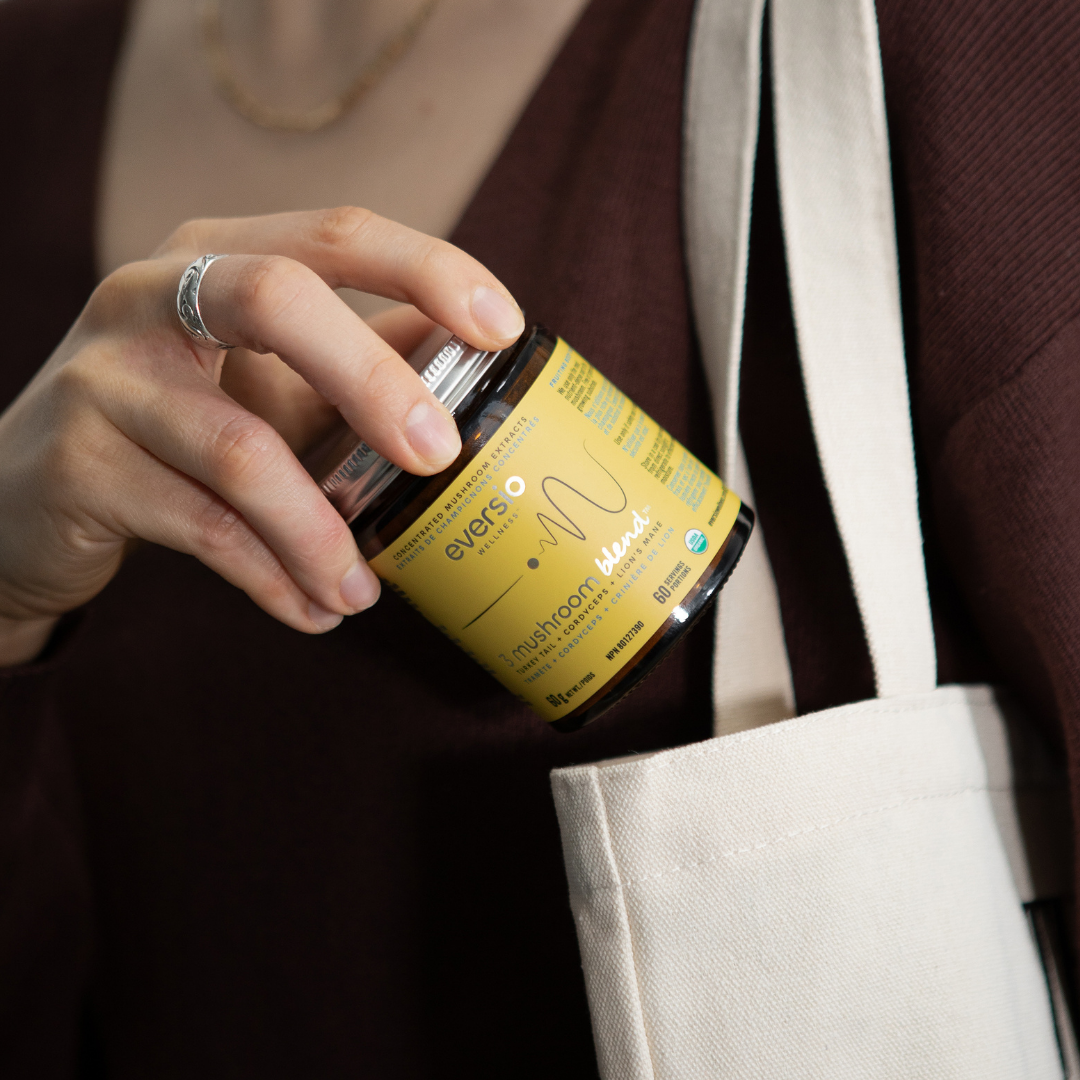

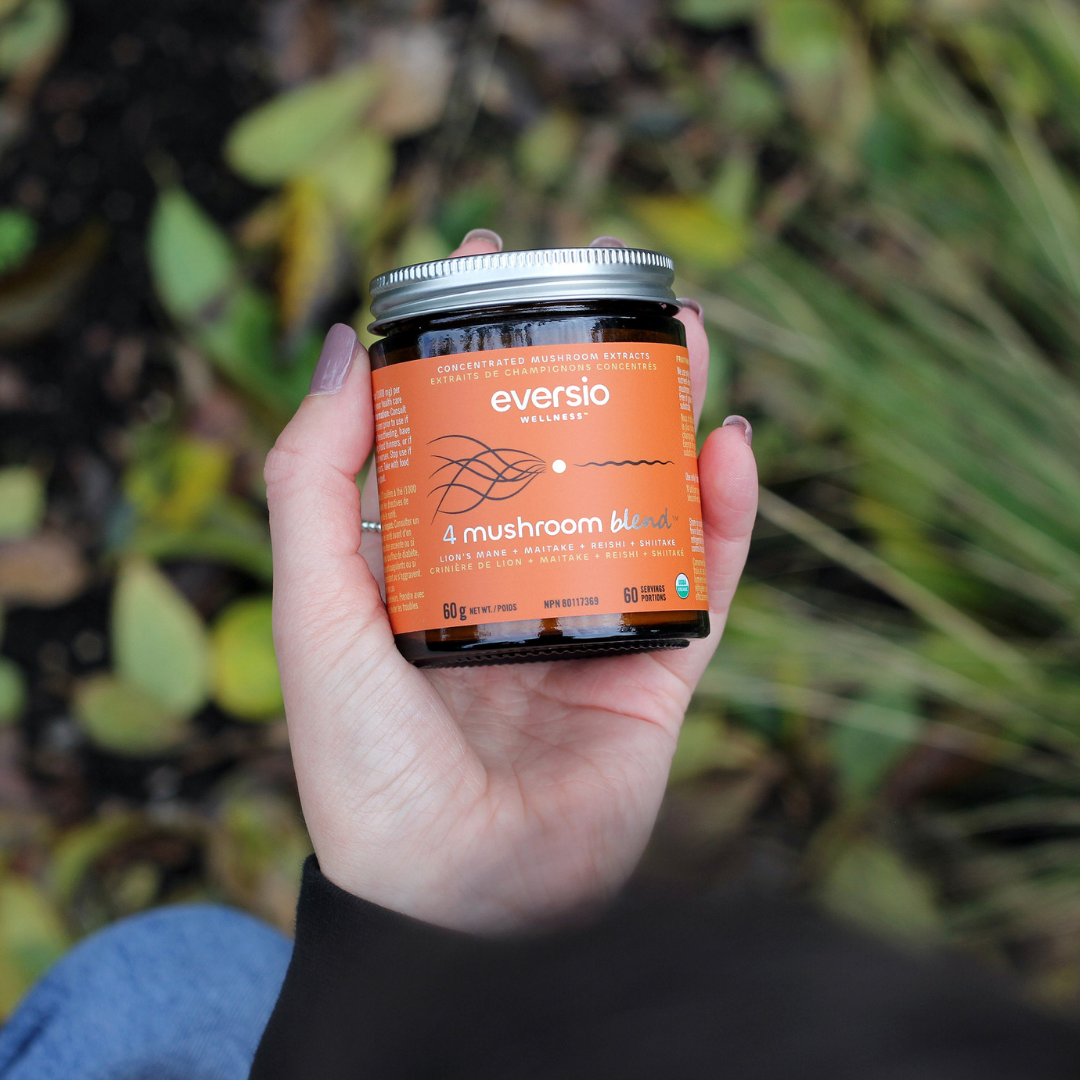

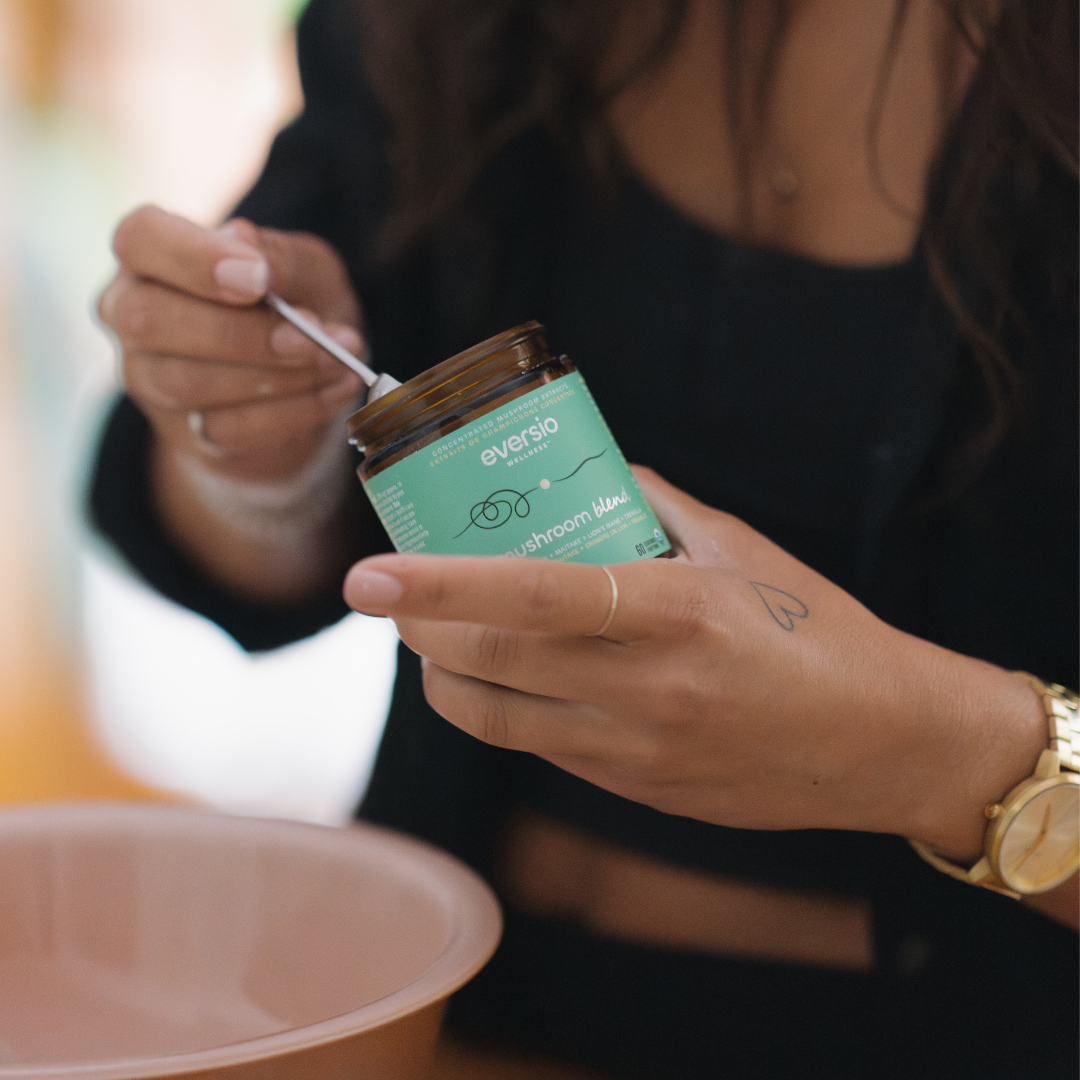

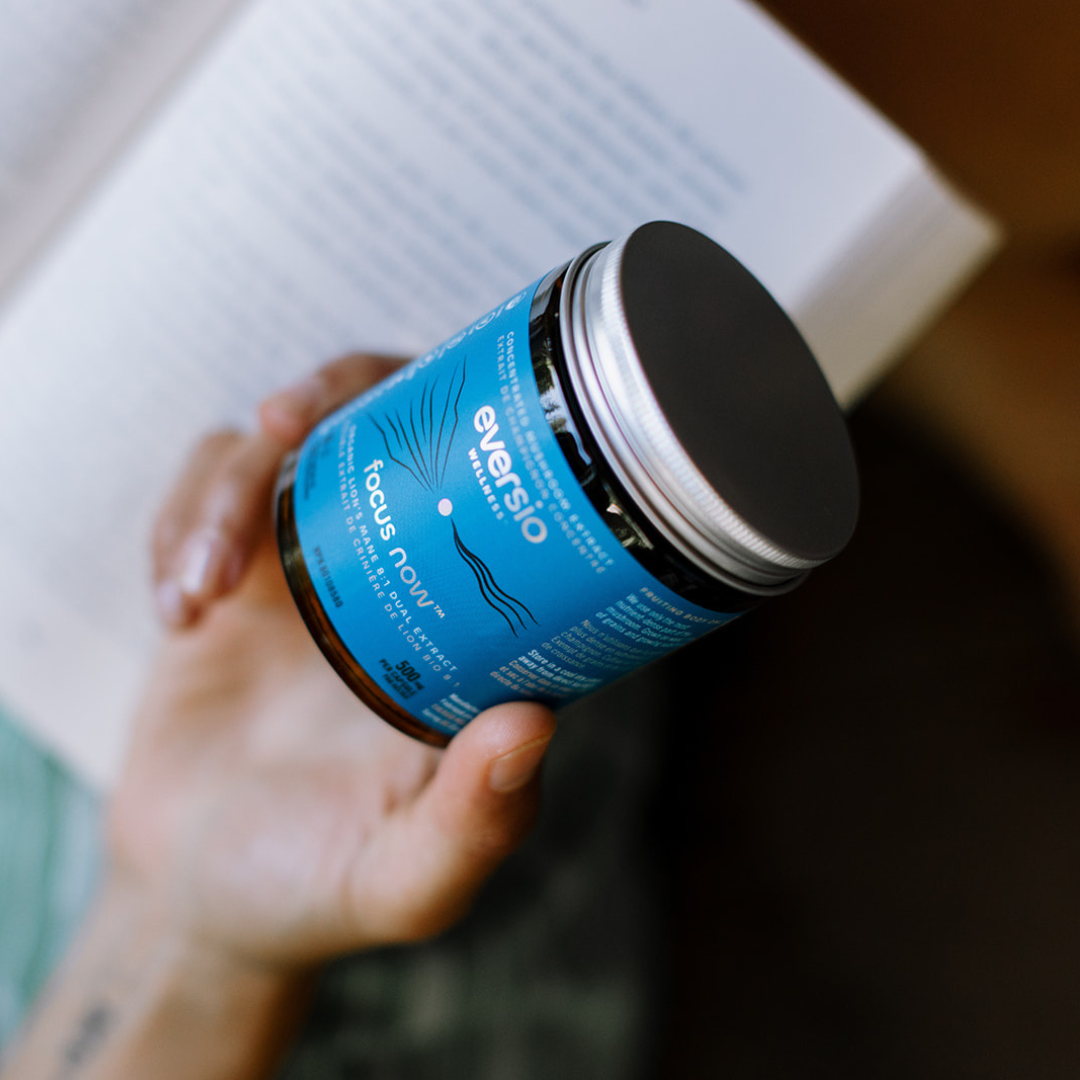

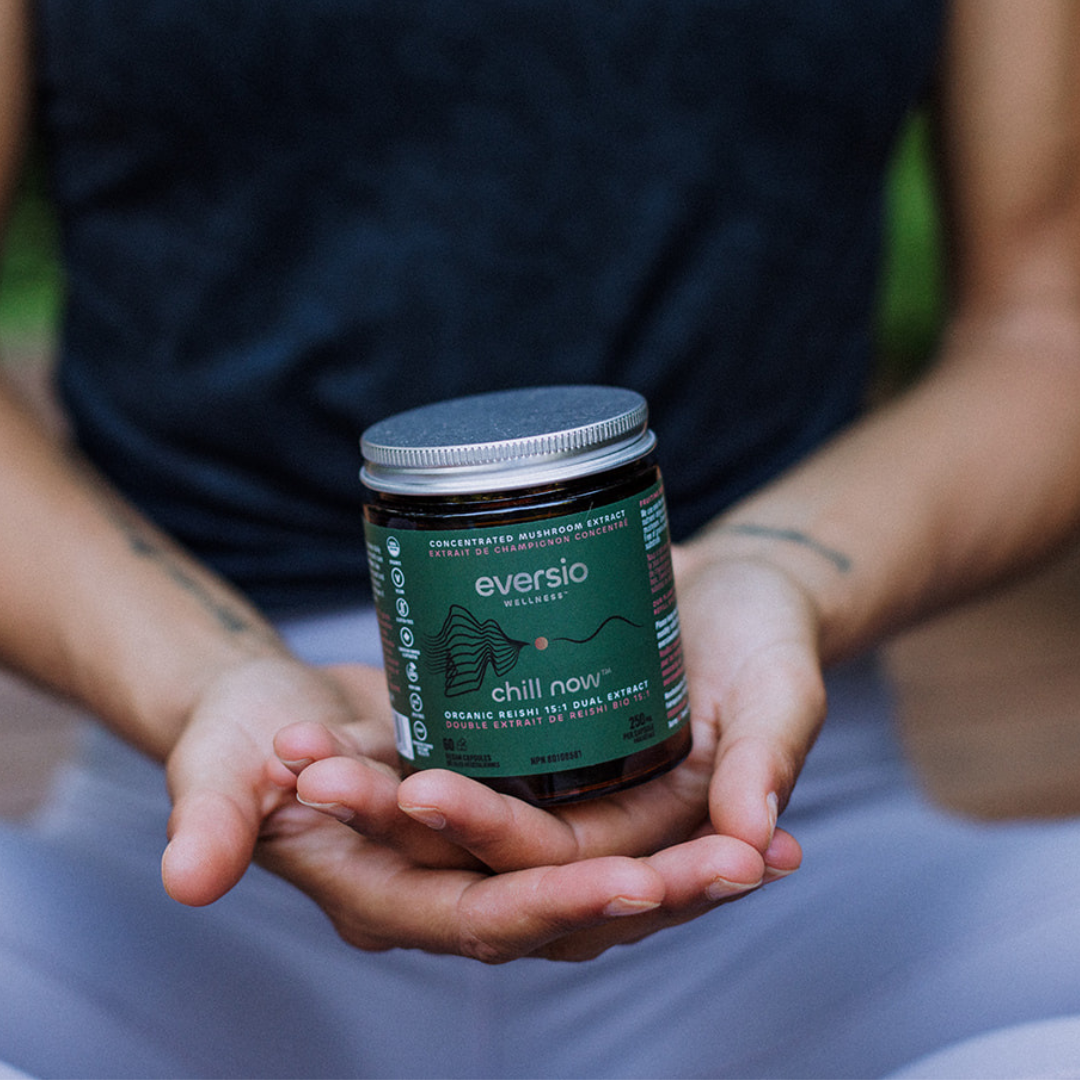
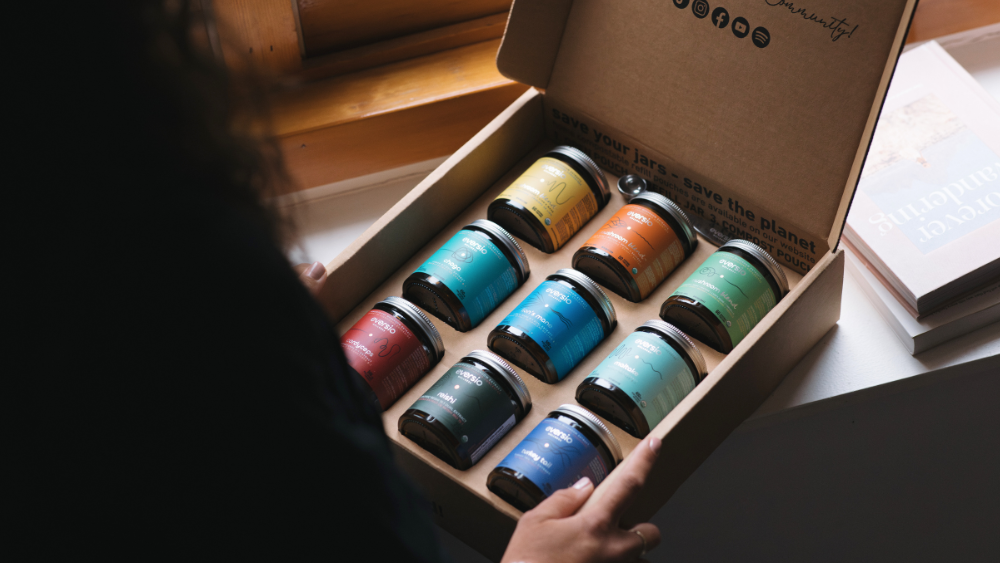







Leave a comment
All comments are moderated before being published.
This site is protected by hCaptcha and the hCaptcha Privacy Policy and Terms of Service apply.